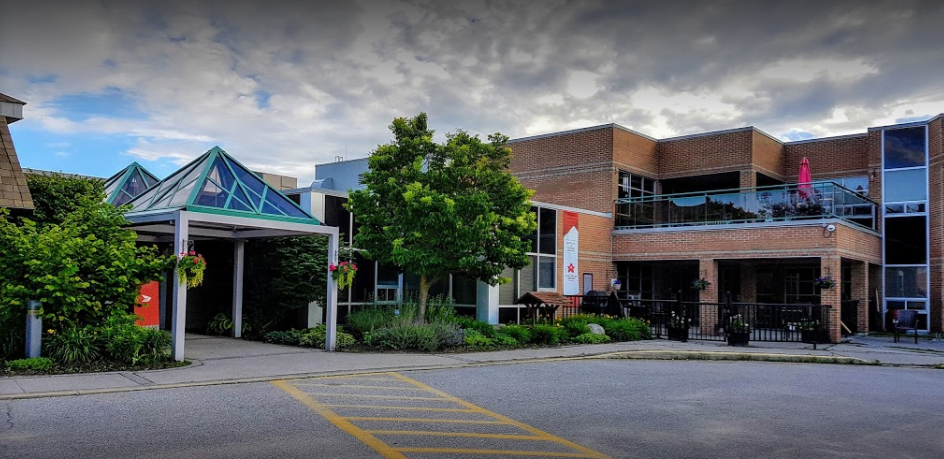Restrictions put in place at long-term care homes across Simcoe County are being eased, more than three years after the World Health Organization (WHO) declared the COVID-19 outbreak a public health emergency of international concern and declared a pandemic on March 11, 2020.
The COVID pandemic hit long-term care homes in the province especially hard — including Roberta Place in south-end Barrie where an outbreak lasted 41 days and eventually claimed 71 lives — and saw facilities across the country locked down and numerous emergency protocols put in place.
The Ministry of Long-Term Care (MLTC) recently released an update to its pandemic-related guidance, in collaboration with the province’s Chief Medical Officer of Health, to normalize and embed effective COVID-19 response measures into routine operations, according to a staff report presented at Tuesday's Simcoe County committee of the whole meeting.
These changes include winding down COVID-specific guidelines through a phased approach, explained Lisa Garratt, the county’s manager of professional practice, adding the first phase of changes, which went into effect March 31, involved lifting certain pandemic response activities that are no longer appropriate or necessary.
“Pandemic response guidance was first issued on March 11, 2020, requiring active screening of all staff, students, volunteers, and visitors to our long-term care (LTC) homes, wearing of medical masks, eye protection and enhanced outbreak protocols," she said in her report.
"Over the past three years, guidance for long-term care homes was expanded to include asymptomatic testing, initially via nasopharyngeal swabs twice weekly for all staff, students, and volunteers to the introduction of rapid antigen testing (RAT) for anyone entering the home."
The guidance changed, often with little notice, and required LTC homes to respond swiftly to implement and update policies and procedures in response, Garratt added.
With long-term care homes being disproportionately affected by the pandemic, and frequently in and out of outbreak status, that had a significant impact on the residents, their families and staff of the facilities as they navigated the restrictions imposed by the MLTC, including restrictions on visitors and the additional demands for infection prevention and control practices that were instituted.
“When COVID-19 vaccinations were released in late 2020, the homes immediately began a vaccine campaign for both staff and residents and we saw dramatic improvement in outcomes for residents who contracted COVID-19," Garratt said in her report. "These residents were more often asymptomatic or had less severe symptoms and the mortality rate decreased across the province."
In Simcoe County, LTC homes have vaccinated 99 per cent of residents with the primary vaccine series and 75 per cent have received all of their required boosters.
“Our staff are required to have the primary vaccine series and first booster to work in the homes," she said. "Vaccination continues to be offered to all residents, staff, and volunteers to ensure that we are providing a safe home to our residents and workplace for our staff."
As the province approaches the end of what she described as a “challenging respiratory illness season” without requiring additional public health measures beyond those already in place, the MLTC lifted several pandemic response activities as of March 31, 2023, including asymptomatic screen testing and no longer requiring staff, students, volunteers, support workers, caregivers, and visitors to be subjected to rapid antigen tests.
The homes are also no longer required to report statistical information on asymptomatic testing to the ministry, nor are they required to conduct documented screening activities for those entering the home.
“Individual passive screening is required using signage at the home’s entrance to remind staff and visitors to self screen prior to entry. If any symptoms are detected on the self-screen prior to entry, staff and … visitors are asked not to enter the home,” stated Garratt, adding the requirement for outdoor masking for residents and their visitors will be lifted, however indoor masking with a medical mask will remain in place at this time.
Residents will continue to require daily point-of-care risk assessments, however the requirement to do temperature checks has been removed, Garratt explained.
Group programming can resume without the need to ensure that physical distancing is maintained and the limit of one caregiver at a time during an outbreak or when a resident is symptomatic or isolating has been lifted. Visitor restrictions will be made in collaboration with the local health unit if a home is in outbreak, she noted.
“Subsequent phases of restriction changes are unknown at this time, but (we) anticipate a further easing of restrictions will be communicated over the next few months," Garratt added. "In ongoing support for the safety of our residents, staff and visitors, our homes have robust infection prevention and control practices and outbreak protocols in place to support management of illness and outbreaks as they arise."
